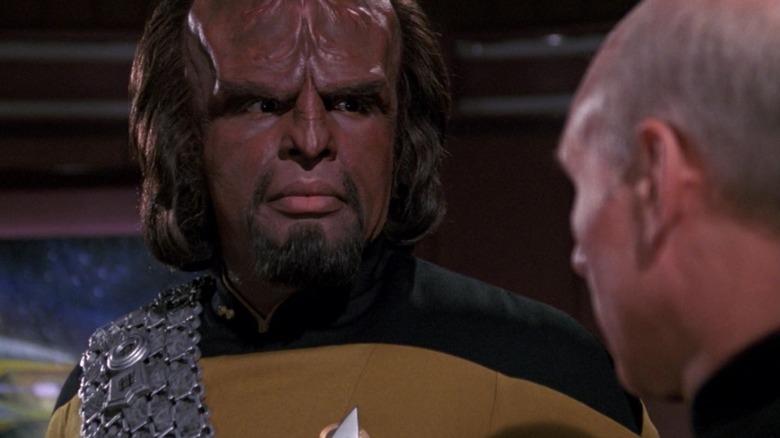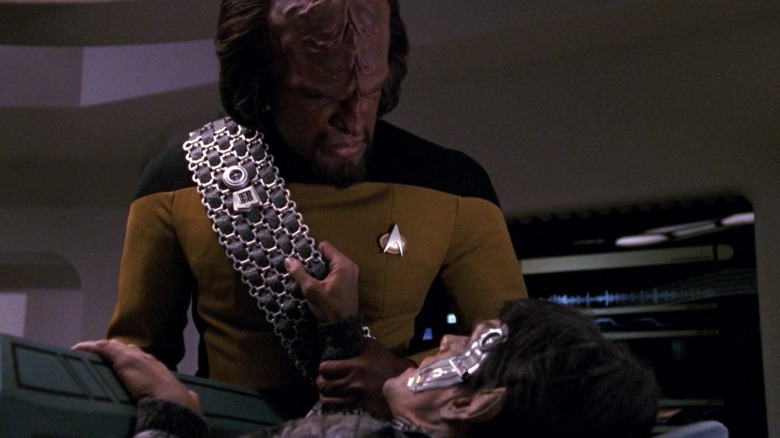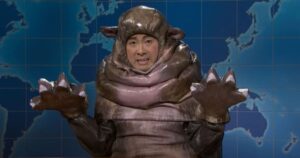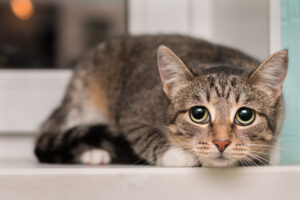Michael Dorn Disagreed With One Worf Resolution In Star Trek: The Subsequent Technology
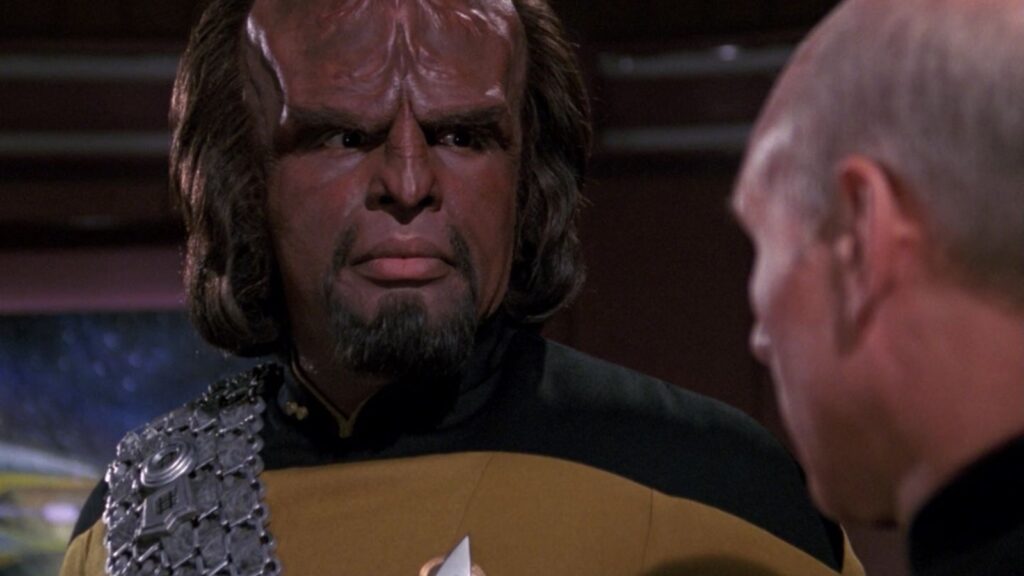
Within the “Star Trek: The Subsequent Technology” episode “The Enemy” (November 6, 1989), the usS. Enterprise-D rushes to assistance from a downed Romulan vessel on a stormy, radioactive planet referred to as Galorndon Core. Dr. Crusher (Gates McFadden) manages to rescue an injured Romulan officer, and retains his situation regular again on board the ship. It appears, nevertheless, that the Romulan suffered a deep neurological harm that she will not be capable to deal with except she will get some Romulan blood she will transfuse. Sadly, the Federation and the Romulans are nonetheless deeply at odds, and there’s no Romulan blood readily available.
Dr. Crusher does discover that she will, with some intelligent natural chemistry, alter the blood of a Klingon to function an inexpensive facsimile, and there may be one Klingon, Worf (Michael Dorn), on board. All she must do is get a blood pattern from him, extrapolate the suitable ribosomes, and save her affected person’s life. The one drawback is that Worf refuses to offer a pattern. Worf understands that if he refuses to assist, the Romulan will die, however he would not a lot care. Romulans killed his household, and they’re a sworn enemy of Starfleet, so Worf feels no want to avoid wasting them. He feels giving his blood to avoid wasting the lifetime of an enemy is a violation of his ideas. Nobody can order Worf to offer his blood, so Crusher and Captain Picard (Patrick Stewart) need to persuade him to swallow his delight.
However Worf’s delight is unswallowable. Earlier than the episode ends, the Romulan dies. Worf expresses no remorse. Dr. Crusher is horrified.
Dorn talked about “The Enemy” within the oral historical past e-book “The Fifty-Yr Mission: The Subsequent 25 Years: From The Subsequent Technology to J. J. Abrams,” edited by Mark A. Altman and Edward Gross, and the actor expressed some remorse over Worf’s resolution. He understood that Worf was knowledgeable largely by his delight, however in “The Enemy,” Dorn felt his character was cussed to the purpose of homicide.
Dorn and the producers disagreed over ‘The Enemy’
Worf, for any non-Trekkies studying, was raised on Earth by human mother and father after Romulans killed his organic father. Worf has been dwelling amongst people most of his life, however had at all times been decided to stay by a Klingon code of ethics. He has remained humorless and stern his complete life, surrounding himself with the Klingon accouterments he missed in his youth. Worf, for those who’ll forgive me, clings on to his tradition. It grounds him, it makes him who he’s. Therefore, when it got here time to precise Klingon ethics — that are very completely different from human ethics — the present’s producers felt Worf ought to stay as Klingon as attainable.
Dorn did not like that as, within the case of “The Enemy,” it made Worf look dangerous. Dorn felt that Worf ought to have adopted a extra human viewpoint. The producers of “NextGen,” nevertheless, felt that there ought to at all times be one thing of an moral divide, inflicting extra private battle for the sequence. Extra battle equals extra drama. Dorn remembers expressing his objections, saying:
“I referred to as the producers and mentioned I did not agree. I believed [giving blood] was the honorable factor to do. I believed folks would have a look at [Worf] as a assassin. The producers felt that Worf was attending to be too Human … only a man with an enormous head. When the chance got here for them to point out that Worf was not Human, that he’s not certain by the identical morals as we’re, they felt it was a beautiful alternative.”
After Worf denied his blood to the dying Romulan, nothing was achieved. Nobody complimented Worf for sticking up for himself, and each Dr. Crusher and Captain Picard expressed their dismay and disappointment that Worf would assist save a life. However that made the story extra tragic and, therefore, extra satisfying. Additionally, it is essential to remind viewers that the nonhuman characters on “Star Trek” do not share the identical ideas because the people, and that ethics should at all times be challenged and mentioned.
It is what makes “Star Trek” “Star Trek.”
